Russia recognises gay marriage for the first time in shock move
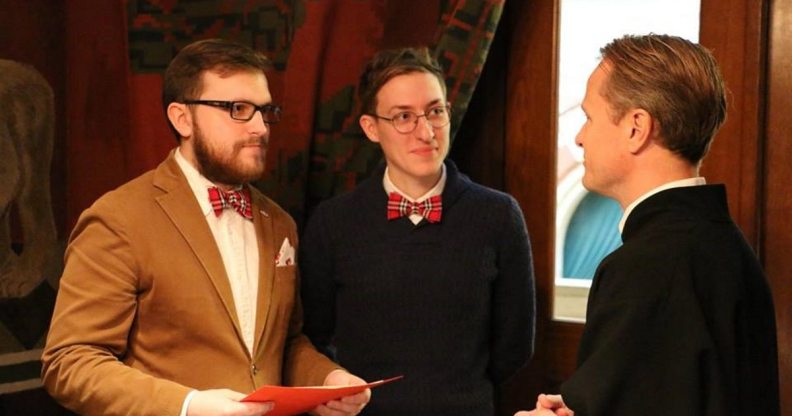
(Facebook/Pavel Stotsko)
Russia has recognised a gay marriage for the first time, in a move which shocked even the newlyweds involved.
Eugene Wojciechowski and Pavel Stotsko tied the knot on January 4 in Copenhagen, Denmark, in matching bow-ties.
When they returned to Russia, they hoped – but did not expect – that their union would be seen as legal in their home country.
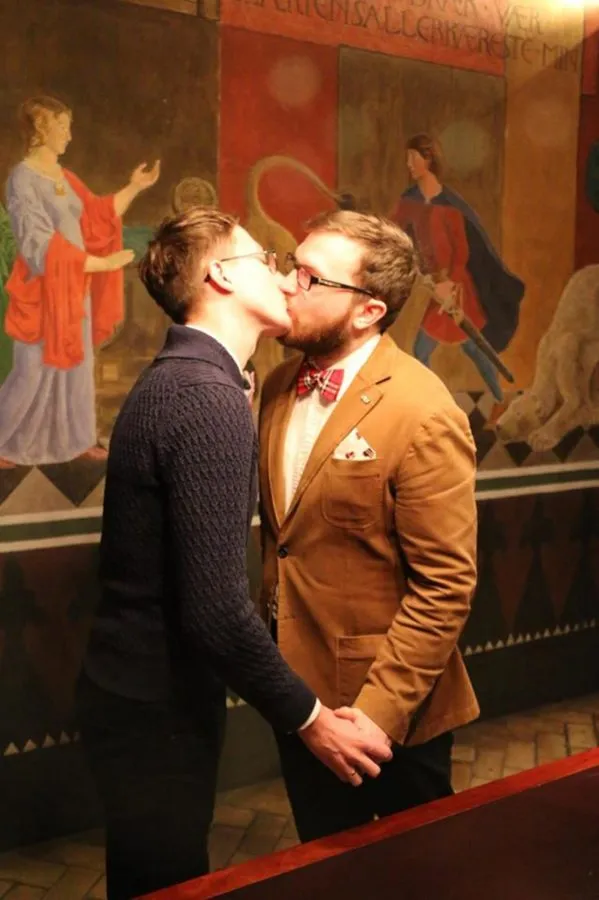
(Facebook/Pavel Stotsko)
To their shock and delight, a government employee in Moscow stamped their passports with official confirmation of the marriage – and it took just five minutes.
The news is as surprising as it is welcome, coming just weeks after research found that 83 percent of Russians think it’s “always reprehensible” or “almost always reprehensible” for two adults to have gay sex.
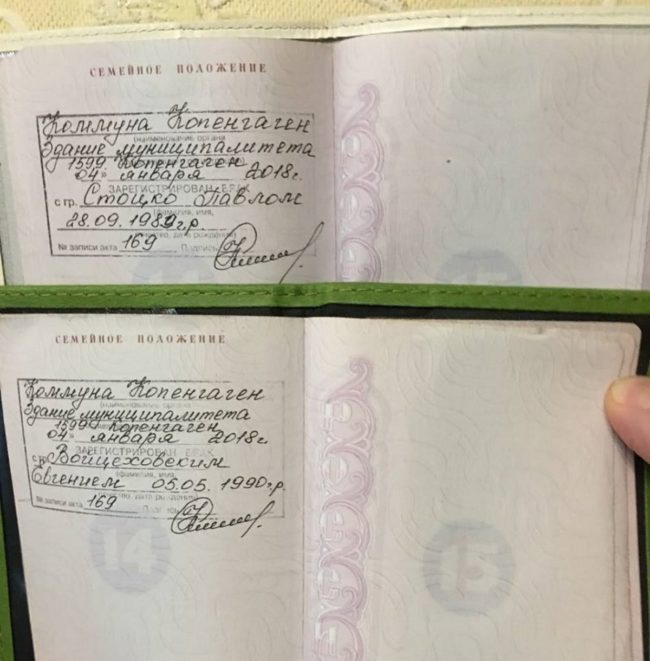
Legal recognition of the pair’s marriage (Facebook/Pavel Stotsko)
This marked a drastic increase from 1998, when just 68 percent found it unacceptable, and even 2008, when 76 percent found it unacceptable.
Wojciechowski and Stotsko, speaking to independent Russian channel TV Rain, said that the staff member drew up the documents to validate their marriage “without superfluous questions.”
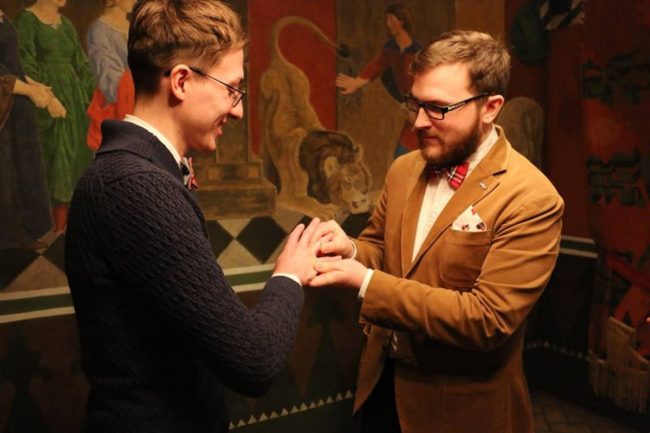
(Facebook/Pavel Stotsko)
“He did not even change his expression,” they added.
According to Russian law, weddings conducted abroad are legitimate if there is nothing “preventing the conclusion of marriage specified in Article 14 of the Family Code.”
This rule seems to contain a loophole which the newlyweds have taken advantage of.
It states that marriages cannot be approved if they are between close relatives or adoptive parents and adopted children, or if one spouse is already married or unable to make a decision for themselves because they are severely mentally ill.
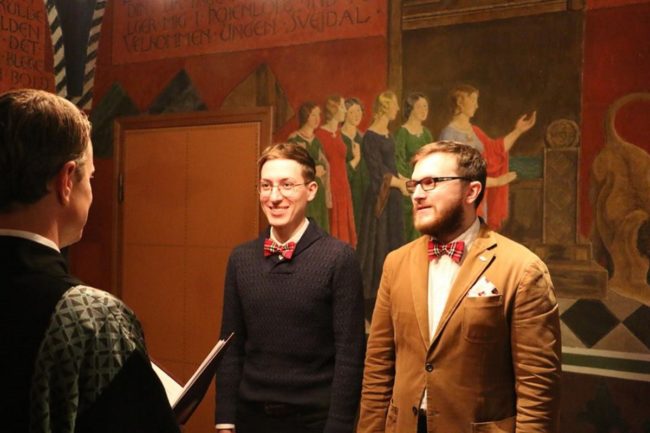
(Facebook/Pavel Stotsko)
Nothing in the law states that same-sex unions constitute a disqualifying factor.
There is a line saying that for the marriage to be recognised, “the mutual voluntary consent of the man and woman entering in marriage” is required.
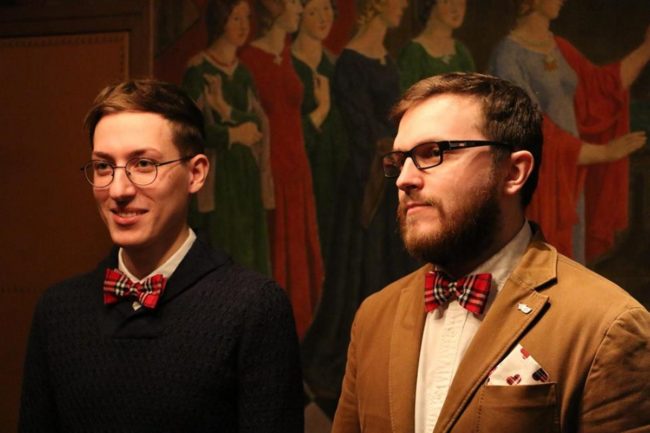
(Facebook/Pavel Stotsko)
But when TV Rain questioned the Moscow office where Wojciechowski and Stotsko had their marriage approved, the press officer was unable to clear up the point.
“Your question would make sense if the Russian Federation’s Family Code used a different formulation,” they said.
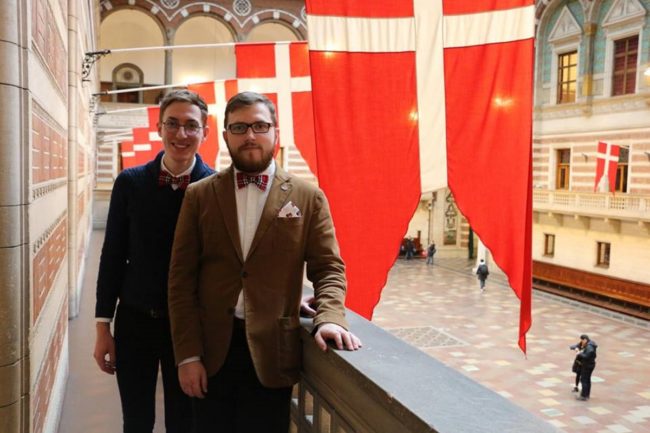
(Facebook/Pavel Stotsko)
“For example, ‘voluntary consent of persons entering into marriage.’
“Further discussion of your issue I think is inexpedient,” they concluded, without clarifying much of anything.
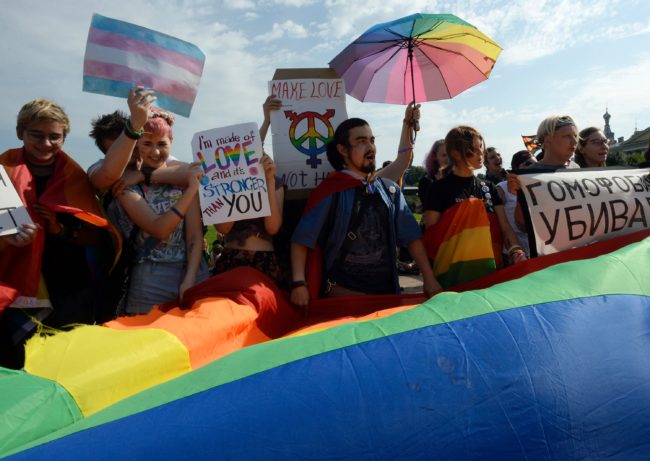
(Getty)
In 2014, a marriage between a cisgender woman and transgender woman was recognised in St. Petersburg.
However, this was only because the trans woman had not been able to change her gender identity on official documents, meaning the government saw the marriage as heterosexual.
Last year, it was found that hate crimes against LGBT people have doubled since Russia created a law banning gay “propaganda”.
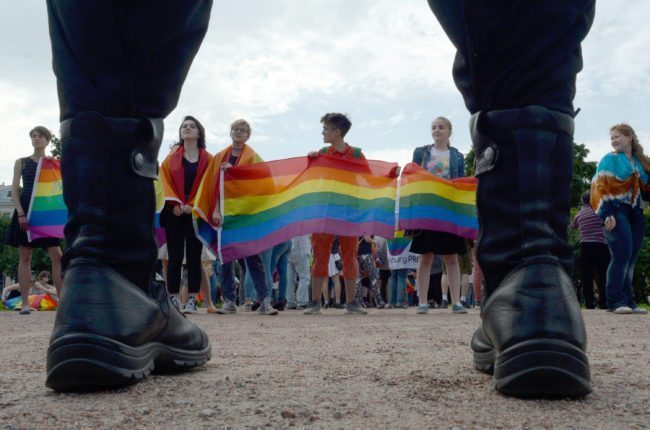
(Getty)
The 2013 legislation, which prohibits “propaganda of non-traditional sexual relationships” towards minors, has been condemned by the European Court of Human Rights.
The European judges found that the law “reinforced stigma and prejudice and encouraged homophobia”.
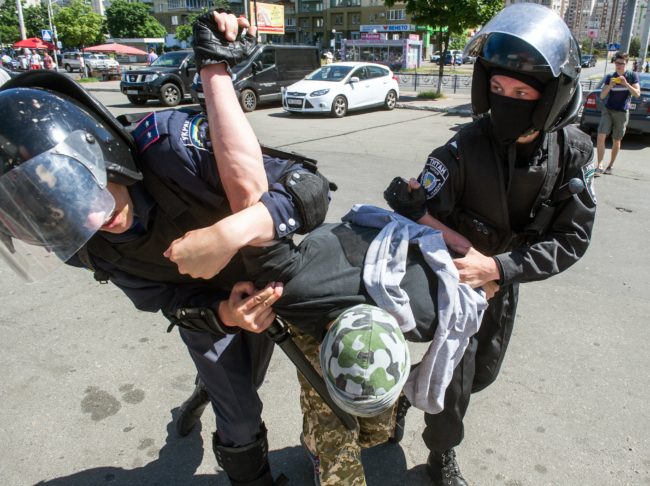
(Getty)
The law also bans people from sharing “distorted ideas about the equal social value of traditional and non-traditional sexual relationships”.
It has been widely abused by Vladimir Putin’s government to clamp down on the LGBT rights movement as a whole.

